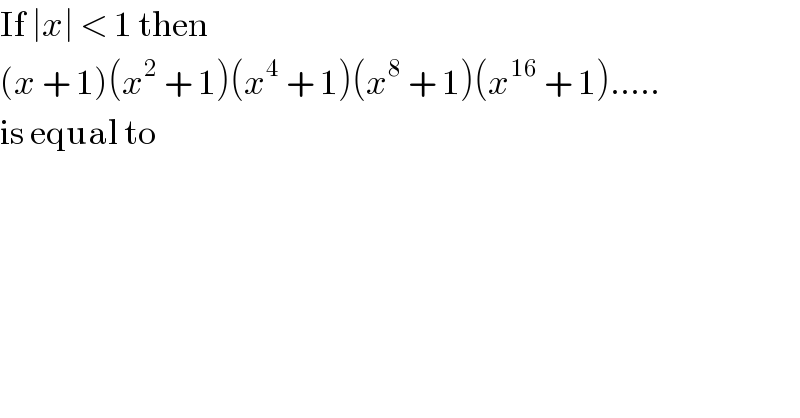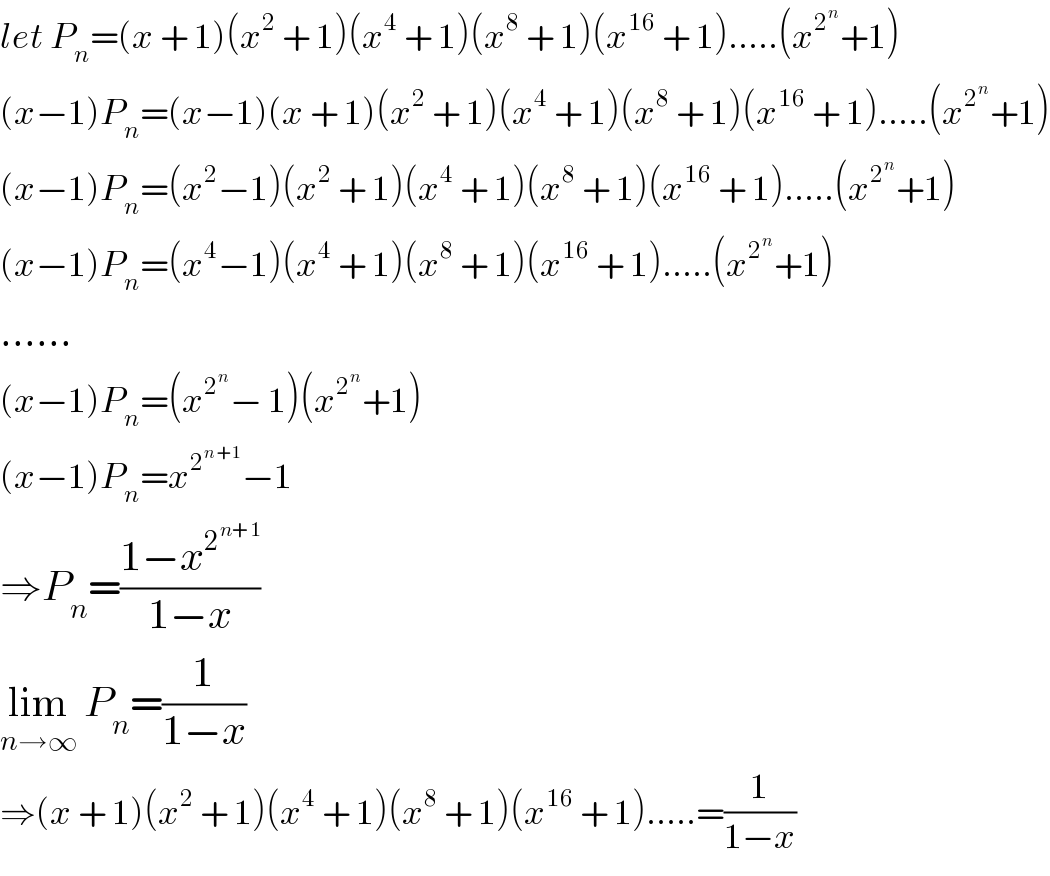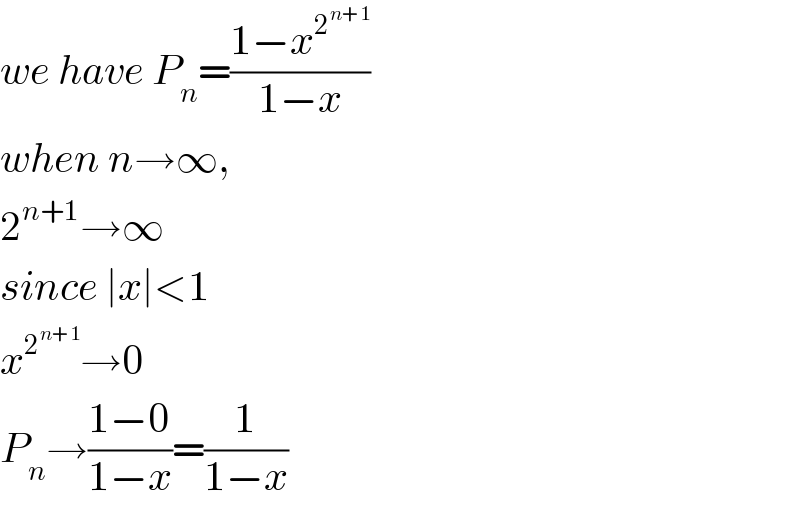
Question and Answers Forum
Question Number 24286 by Joel577 last updated on 15/Nov/17

Answered by mrW1 last updated on 15/Nov/17

Commented bymath solver last updated on 16/Nov/17

Commented bymrW1 last updated on 16/Nov/17

Commented bymath solver last updated on 16/Nov/17

Commented byJoel577 last updated on 16/Nov/17

